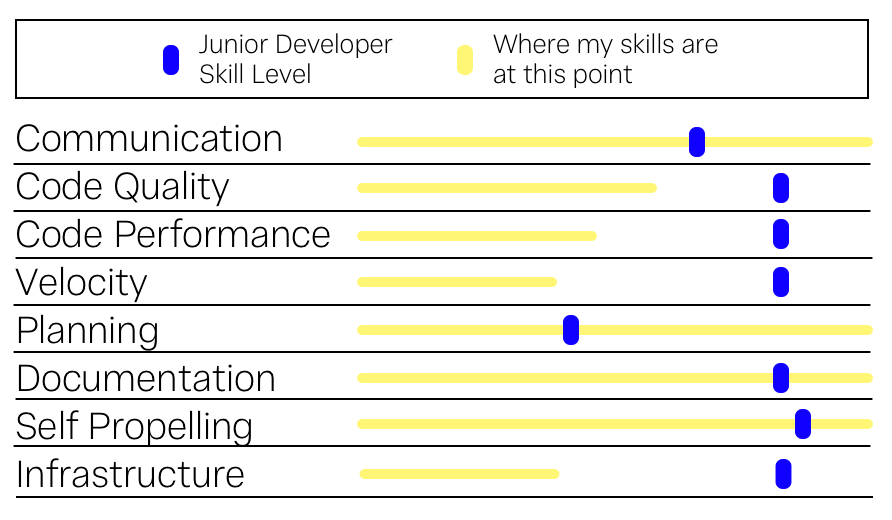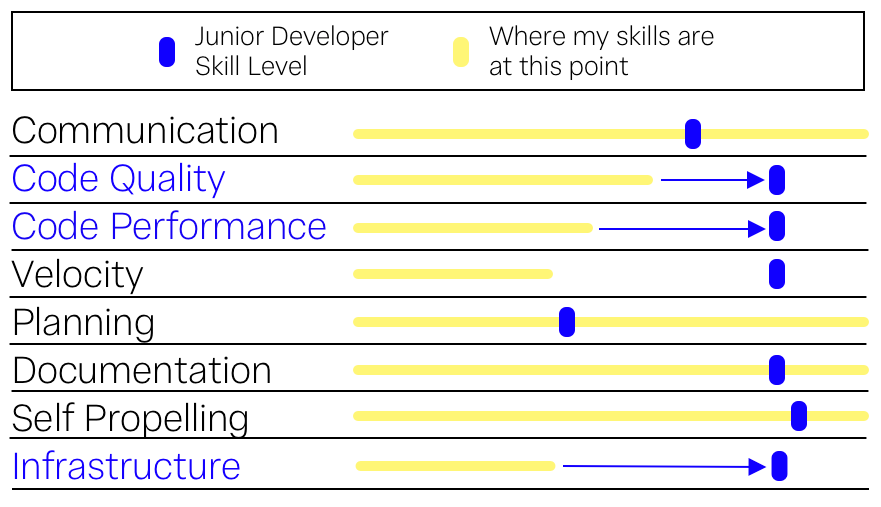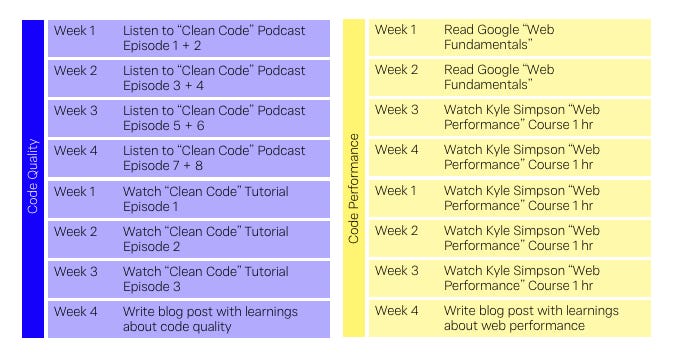Be the Bob Ross of your career - A career development framework
It is 2020 and my LinkedIn says that I am a Web Developer. I write code every day, which means I must actually be one. Five years ago I had never guessed that this is where I would end up, and I absolutely love it.
What got me here is courage, persistence, hard work and — my framework for self development. Maybe it’s a German trait but I am obsessed with process and turning a dusty fuzz into neat steps and boxes.
In this blog post I am sharing my personal approach to career planning and development, which is anchored in three factors: Scope, Priorities and Timelines. I use it to progress in my career as a Web Developer, but I believe it can be translated into many other professions.
My story begins in 2017, when after a 3 months full-time coding bootcamp I started a Web Developer Internship at an agency called “Your Majesty” in Amsterdam.
The Challenge
The moment you transition into another field can feel pretty intimidating. You don’t know where to start because, frankly, everything is new and overwhelming. On top of that everything seems to be equally important to learn, and you don’t have enough knowledge to prioritise. Scope, Priorities and Timelines are the three super heroes that save you.
Scope
Your career is just like a map: In order to get somewhere, you need to know where you stand. I knew I wanted to become “a Web Developer” but I didn’t know where my coding bootcamp and existing experience put me on the map. So my manager and I created one by evaluating my skills against the skill level of a Junior Developer.

📷 Extract of my skills evaluation when I was an intern back in 2017.
This is the hardest and most time consuming step. Especially if you are working at a place that doesn’t have career frameworks and role levels mapped out, this step requires some work. However it is also a great tool to gather your manager’s expectations towards you and facilitates valuable conversations about your career planning.
Try to stay as tangible as possible because you want to able to measure your progress in each section (an aspect that could have been improved with my own plan above). I would also recommend to stay flexible: Agree on a set of skills and run with it, but also be open to re-evaluate them after a couple of months to see if still relevant to your work and career ambitions.
Priorities
Not everything can be learnt at the same time. Depending on your role, team and company, some skills might me more relevant than others. Additionally there might be some skills where you have bigger “gaps” than with others. In my example we prioritised the most relevant skills where I was “off” the furthest.
You might notice that we didn’t prioritise “Velocity” because we agreed that it will progress naturally with time and experience.

📷 Prioritising skills with the biggest “gaps”.
In my personal experience this is the most important step. For me it created a safe space of knowing what to focus on and, even better, what to ignore for the time being. It enabled me to remove some noise in my head and get into a productive state of mind, where I could turn my ambitions into actions.
Timelines
A plan is only as great as its execution. Time allows us to add another dimension to our personal development and makes everything even more tangible.
I decided to focus on one skill at a time over a timeline of 6 months. This gave me around 2 months to focus on each of the three skills we set out to work on. This approach might not work for everyone, but to me it was very helpful as it allowed me to write my own “curriculum”.
Speaking of curriculum, now was the time to research learning material. In my case I looked up online-tutorials, books, or podcasts about “Code Quality”, “Performance” and “Infrastructure” and broke them down into chunks of content, which I then laid out per week.

📷 Mapping my first two focus areas into weeks and setting up tangible goals.
Learnings & Thoughts
A fair question comes to mind: “Are you ever done with learning something?”. Any learning experience can seem like an infinity pool, no borders to be seen. And to some extend it’s true, which leads me to this advice:
“Get to terms with the fact that you will never be done”.
However creating your own curriculum based on real-life industry input (from your manager, your work, other peers with your job) empowers you to first create these borders and then move beyond them. In order to keep going and stay motivated we need the feeling of fulfilment and completion. We need the satisfaction to “tick that box” or “cross out that task”.
In my role at Your Majesty I went through three different rounds of career planning and moved from an intern to a junior and eventually mid level developer role. Having this framework enabled me to balance along a rope with a railing and to have a common ground to discuss my career progression with my manager.
However I certainly learnt another important thing:
“No matter how hard you study, you can’t shortcut experience”